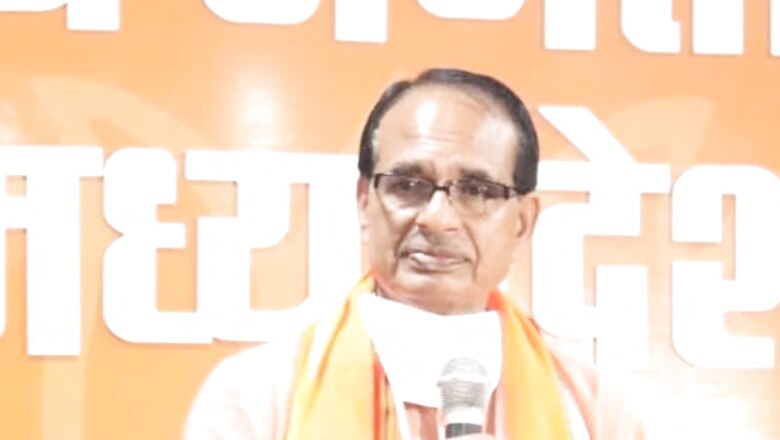
views
In a bid to woo the tribals of Madhya Pradesh that will go to polls in 2023, the Bharatiya Janata Party has decided to implement the PESA Act, a long-standing demand of tribal rights activists. While observing the martyrdom day of tribal freedom fighter Tantya Bhil on Saturday, MP Chief Minister Shivraj Singh Chouhan announced that the state is implementing the PESA act.
The Panchayat Extension to Scheduled Areas (PESA) Act is being implemented in the state under the guidance of Prime Minister Narendra Modi to strengthen the Gram Panchayats, said Chouhan as he addressed a large gathering at the Nehru Stadium to mark the martyrdom day of Tantya Bhil who was hanged to death by the British for his revolutionary activities in Jabalpur on this day.
Chouhan also unveiled a memorial built in the honour of the great freedom fighter at Patalpani, a tribal settlement in Indore.
Taking his new-found proximity with the tribals a step forward, the CM then danced to folk tunes on the stage with the tribal leaders.
Targeting the Congress’s traditional vote bank, Chouhan said the party could not even offer a separate ministry for tribals during its decades of rule and said that it was late Prime Minister Atal Bihari Vajpayee who constituted an independent ministry for the community.
Announcing the implementation of PESA Act in the state, Chouhan said the move will ensue greater rights of gram panchayats on resources in the tribal regions, including the rights on the land, minerals and forest produce. This act will empower gram sabhas in having socio-religious arrangements of the ethnic communities, he said.
Patalpani will have a fair every year on December 4 in the memory of Tantya Bhil, Chouhan said, adding that the place will be developed as a pilgrimage with a budget of Rs 4.55 crore.
He also announced waiving off loans offered by irregular creditors till August 15, process to fill backlog posts in the government, loan subsidy for business, land rights for landless tribals, MSP for forest produce and others.
Anil Garg, an advocate and senior forest rights activist, said that the PESA Act is already in implementation since 1996 and states such MP are required to formulate its rules which the state government had undertaken recently. He, however, pointed out that social organisations weren’t consulted on the matter and the government departments alone worked on these provisions which did not seem proper.
He lauded the move to implement the Act which was pending since 1996 and said it will be interesting to observe how contradictions on forest rights are resolved by the state government. He cited an example of forest produce which the forest department sees as a right in MP but the PESA Act reserves community right on forest produce.
Dr Hiralal Alawa, a national convener of tribal outfit-Jai Adivasi Yuva Shakti, told News18.com that there are certain rules formulated by the state government which are not in accordance with the sentiments of the Act. “I had written a letter on the same to the state government,” he added.
Dr Alawa reaffirmed that proper implementation of the Act is key to tribals’ autonomy and cultural identity.
PESA Act Cleared in 1996
The parliament had cleared the PESA act in year 1996 based on the recommendations of the Bhuria committee, in a bid to empower inhabitants of persons living areas as specified by the constitution as residents of the scheduled areas, mostly dominant population-tribals. For long, MP and some other states failed to formulate rules for the same.
PESA Offers Autonomy, Self-Rule
While promising autonomy in local affairs, the gram sabhas are offered rights on local resources and other affairs under the Act, which, in turn, promises greater autonomy to the ethnic locals. Besides having control on natural resources, forest land and forest produce, the gram sabhas will be empowered to constitute Community Forest Management Committees. These committees will be empowered to chalk out micro plans for the area every year and will also have the right to sell forest produce like tendu leaves, a major source of livelihood for the tribals.
Why PESA is Crucial
The Act is crucial for the tribals as it offers them long-pending autonomy and right to preserve and protect their cultural and regional identities. The Act will offer tribals a way to safeguard their resources, keep the culture alive and keep their identity intact.
Read all the Latest Politics News here
















Comments
0 comment